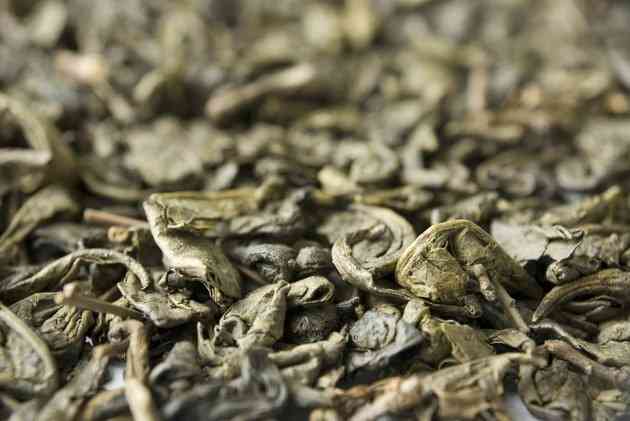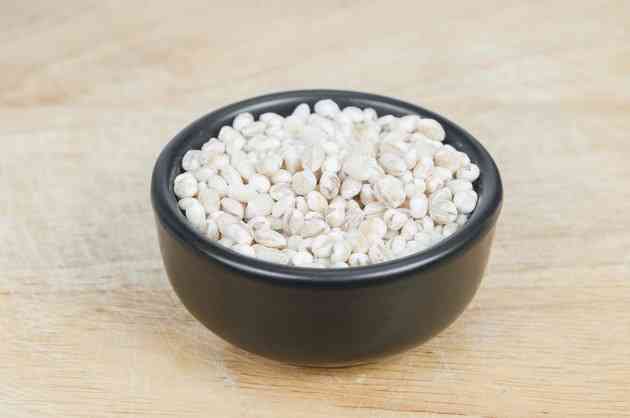The Health Benefits of Gunpowder Green Tea

Like other green teas, the gunpowder variety is associated with a number of important health benefits. Consumed plain, green tea also provides zero-calorie refreshment, making it a friendly choice if you're watching your waistline. Green tea usually contains caffeine, however, which may cause restlessness, anxiety and upset stomach in large doses -- or even in moderate doses if you're sensitive to caffeine.
 A close-up of gunpowder green tea leaves. (Image: Magdalena Jankowska/iStock/Getty Images)
A close-up of gunpowder green tea leaves. (Image: Magdalena Jankowska/iStock/Getty Images)A Friendly Burst
Gunpowder green tea comes from the Camellia sinensis plant, just like all varieties of green tea. Although the leaves are the same as those in other teas, they're presented a bit differently: gunpowder tea leaves are rolled into small pellets that expand when steeped, releasing the flavor and nutrients. The tea's health rewards mainly come from flavonoids called catechins, which influence cell-signaling pathways, according to the Linus Pauling Institute. The institute notes that, although existing flavonoid research appears promising, more clinical trials are needed to confirm the benefits.
A Stronger Immune System
Green tea may help fend off colds and influenza, providing extra protection during the flu season. In a study published in "Journal of the American College of Nutrition" in 2007, researchers followed subjects who took either green tea capsules or a placebo twice daily for three months. They found that 32 percent fewer people in the green tea group experienced symptoms of colds and flus and that levels of illness-fighting gammadelta T cells were also higher compared to the placebo group.
A Healthier Heart
Several studies indicate that drinking green tea may lower your risk of cardiovascular disease, according to Harvard Health Publications. Although not conclusive, the research suggests that green tea might lower triglyceride and "bad" LDL cholesterol levels. High cholesterol and triglyceride levels may damage the artery walls, contributing to a condition called atherosclerosis, or thickening of the arteries. Atherosclerosis is associated with an increased risk of heart attack and stroke, which means green tea could help prevent these potentially fatal events.
A Longer Life
One large-scale study in Japan, published in "The Journal of the American Medical Association" in 2006, indicates a possible link between green tea consumption and a longer life span. The study followed 40,530 adults over 11 years and found that those who drank the most green tea were less likely to die from any of the causes studied, with the exception of cancer. Those who drank more than 5 cups per day received the greatest benefit. However, Harvard Health Publications warns against drinking that much green tea, citing possible risk of kidney stones and other side effects. Therefore, two or three cups per day may be a more reasonable goal.




